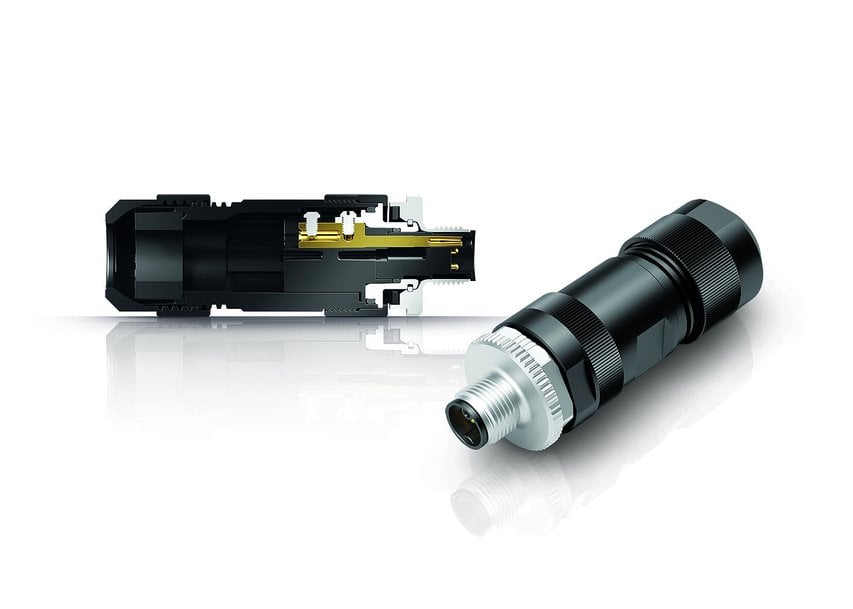www.industry-asia-pacific.com
03
'22
Written on Modified on
Designed for power applications in North America
Use in control cabinets for the North-American market requires specific testing and certification of the components. In the case of power applications, they are subject to the UL 2237 standard. binder's 823 and 824 series of compact cable connectors have been developed according to this standard.

binder, a leading supplier of industrial circular connectors, introduces the 823 and 824 series of cable connectors that are intended for use on the North-American continent. The K- and L-coded M12 products particularly aim at power applications and feature screw clamp terminations. They meet the requirements of the industry-relevant protection degree IP67, i.e. they are designed to be dust-tight and protected against temporary submersion.
K and L coding for industrial power applications
In industrial automation, the transmission of high electrical power via compact M12 components has become a fundamental requirement. The K coding indicates 5-pin connectors that are particularly suitable for power supply in AC applications, such as drives or frequency converters, with up to 630 V(AC) and up to 12 A. DC compact drives, decentralized I/O modules and various other DC-powered automation components connected to fieldbus systems are among the target applications of the likewise 5-pin connectors with L coding. They are designed for rated voltages up to 63 V(DC) and for rated currents up to 16 A.
UL 2237 background
Electromechanical interfaces on control cabinets intended for the North-American market require approvals in accordance with the UL 2237 and UL 2238 standards. While UL 2238 specifies cable assemblies and connectors for signal transmission, UL 2237 sets additional requirements for the power segment – for example, for the power supply in drives. It contains specifications for testing connectors, cables and cable glands as well as safety elements. One of the special features of UL 2237 is the so-called Grounding (Bonding) Path Current Test: Depending on the connection cross-section, the protection earth (PE) path must withstand a current of 190 A (AWG 16) or 300 A (AWG 14) over a period of four seconds without breaking. For AC applications, a so-called abnormal overload test is also mandatory: a test with 1.5 times the rated current, which is considered to be passed if the PE path fuse does not blow.
823 and 824 series product details
The binder product series 823 and 824 include both male and female cable and angled connectors for rated voltages of 630 V(AC) at rated currents of 12 A (K-coding; pin count 4+PE) and 63 V(DC) at 16 A (L-coding; pin count 4+FE – functional earth), respectively. They feature M12x1 threads, 8-mm to 13-mm cable outlets and screw clamp terminals. In order to meet the requirements of UL 2237, the threaded ring is electrically connected to the PE contact. UL 2237 certification is currently being prepared.
www.binder-connector.com

